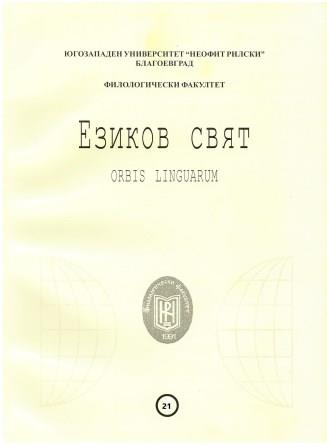MOBILIZING HASHTAGS IN THE LIGHT OF THE SPEECH ACT THEORY: A CASE STUDY OF TWITTER POSTS RELATED TO RESTRICTIVE MIGRATION POLICIES
MOBILIZING HASHTAGS IN THE LIGHT OF THE SPEECH ACT THEORY: A CASE STUDY OF TWITTER POSTS RELATED TO RESTRICTIVE MIGRATION POLICIES
Author(s): Alexey Vladimirovich Sosnin, Julia Balakina, Antonina JucovscaiaSubject(s): Social Sciences, Language and Literature Studies, Applied Linguistics, Communication studies, Psycholinguistics, Theory of Communication
Published by: ЮГОЗАПАДЕН УНИВЕРСИТЕТ »НЕОФИТ РИЛСКИ«
Keywords: the speech act theory; hashtag; Twitter; mobilization; migration policy
Summary/Abstract: The article implements an integrated approach to examining the mobilization potential of Twitter, which incorporates an analysis of intentions stated by the authors of hashtags and messages. The study cited in the article proceeds from J. Austin and J. Searle’s approach who argued that any utterance is essentially preparedness to perform an action, and examines the Internet space and social networks from the standpoint of the Speech Act Theory. The article explores the illocutionary goals set by the authors of topical tweets containing an explicit evaluation of Donald Trump’s restrictive immigration policy, and establishes the combinatory power of mobilizing hashtags (which call or appeal for action) and of directive speech acts. Established in the article are the most common patterns for the formation of mobilizing hashtags, alongwith the regularities of how directive speech acts and mobilizing hashtags are interrelated. To classify hashtags, lexical , semantic and folksonomic analyses are employed. The interrelation of hashtags mobilizing for action is represented graphically in Gephi software. The article suggests that to realize an appeal for action, the users rely mostly on the mobilizing potential of hashtags or tend to employ a combination of a directive speech act and a mobilizing hashtag, whose meaningful explicit appeal coincides in its communicative potential with the imperative verb realizing the directive speech act. It is concluded that in modern online communication hashtags appear to be a powerful autonomous instrument as far as mobilization is concerned.
Journal: Езиков свят - Orbis Linguarum
- Issue Year: 21/2023
- Issue No: 1
- Page Range: 096-109
- Page Count: 14
- Language: English

